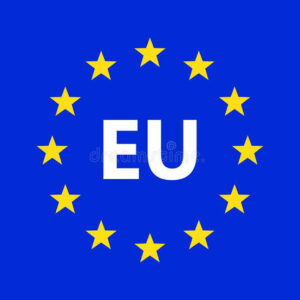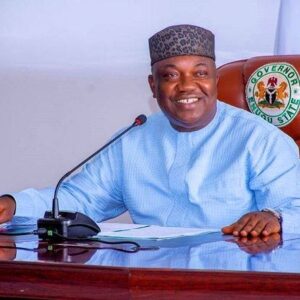
The European Centre for Electoral Support (ECES), an implementing partner of the European Union, has called for equal access to voting rights during the forthcoming Feb. 23 local government election in Enugu State.
The Project Coordinator of ECES, Mr Hamza Fassi-Fihri made the call on Wednesday in Enugu during a training on Inclusivity for Enugu State Independent Electoral Commission (ENSIEC), Women, Youths, and Persons With Disabilities (PWDs).
Fassi-Fihri said that the forthcoming local government election could be a real-size test for Civil Society Organisations (CSOs) to instrumentally mobilise the PWDs to get out their vote.
He pointed out that the training was part of the mandate of the foundation aimed at providing technical assistance and guidance to Electoral Management Bodies (EMB) around the world.
The project coordinator said that the centre had been working in Nigeria since 2017 as part of the European Union – Support to Democratic Governance in Nigeria (EU-SDGN) project.
“We are very happy to be partners of ENSIEC on this event ahead of the upcoming local government election given the importance of the exercise.
“Democracy never delivers as much as when elections are inclusive. Inclusivity guarantees that all people have the possibility to make their voices heard.

“This is even more important for those populations who are marginalised,” he said.
Fassa-Fihri said that the society had to invest efforts to ensure that those citizens had equal access to voting rights, and help to make such rights real and effective.
He said that the youth represented 60 per cent of the population, women more than 50 per cent and PWDs more than 10 per cent.
According to him, in the context of the ongoing reform of the Electoral Act, representatives of such marginalised groups have put efforts for a change in the legal framework to serve greater participation.
“ECES is proud to have been partners of some of these organisations in this important milestone on the way to inclusivity.
“I am convinced that this kind of important dialogues and important steps toward inclusivity is also taking place in Enugu State,” Fassa-Fihri said.
In a lecture, the Executive Director, The Albinism Foundation (TAF), Mr Jake Epelle, stressed the need for inclusive guidelines and laws in the electoral process.
Epelle said that priority voting rights needed to be accorded to persons with disabilities, including pregnant and old women.
“We need magnifying glasses to help those with visual impairments and albinism and to educate those that use Braille and Tactile Ballot.
“Election officers should paste voting instructions and steps at polling units to ensure that such persons with hearing and cognitive impairments are able to follow through,” Epelle said.

Also, the Chairman , Joint National Association for Persons with Disabilities, Enugu State, Mr Chikwe Nnamani, said that their members needed a level playing ground to realise their potentials.
Nnamani thanked ECES for the training and solicited government’s support to help their members to get the best out of the electoral process.
The Executive Director, Nigerian Women Trust Fund (NWTF), Mrs Mufuilat Fijabi called for deliberate efforts to implement specific activities that would ensure gender mainstreaming in the electoral process.
Responding, a Commissioner in ENSIEC, Mr Green Anike-Nweze, assured the participants that the electoral umpire would do its best to ensure a transparent and credible poll.
